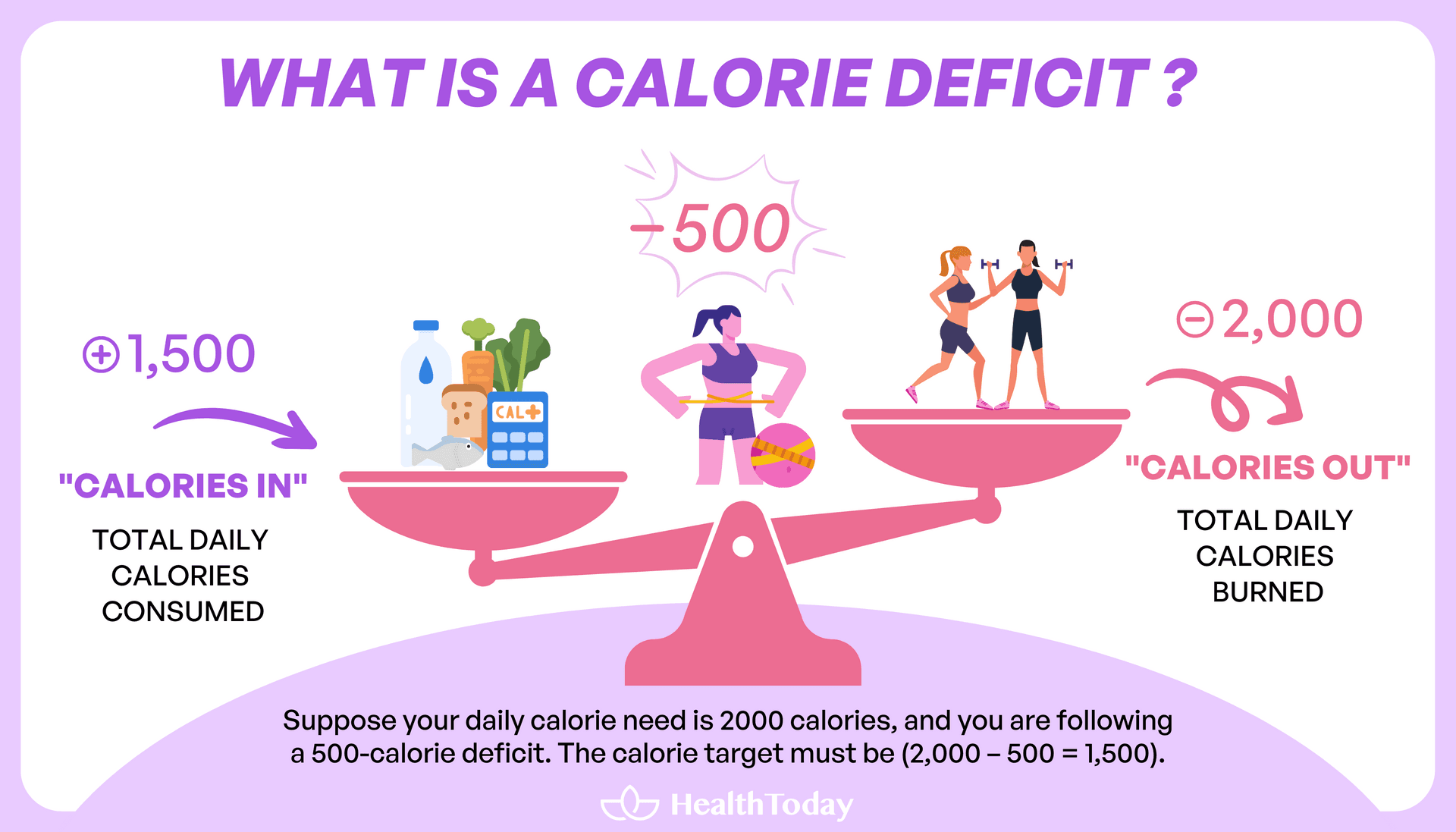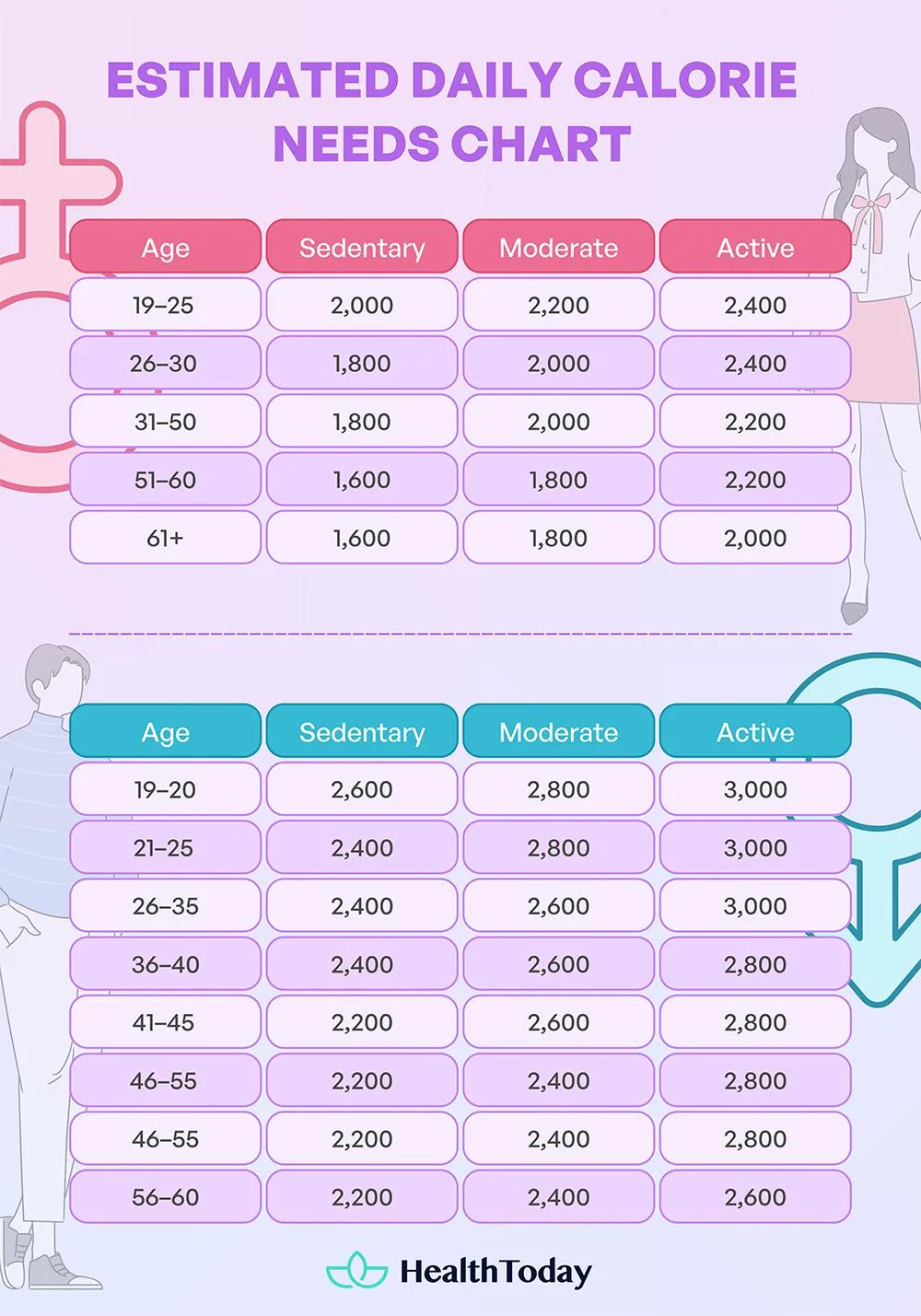Table of Contents
Are you constantly asking yourself how many calories you should eat to lose weight? You’re not alone, as the answer to this question relies on many factors. The recommended calorie intake varies from person to person, as it depends on age, activity, and many other factors.
Besides the calories, if you wish to lose weight but don’t know where to start, check out our advice.
But the answer to losing weight is creating a caloric deficit (eating fewer calories than you burn). This balance is the answer to losing weight. Keep reading as we have rounded up everything about calculating calories, important factors, and helpful tips.
Let’s have a look!
Calorie calculator
A calorie calculator like Mealpro is an efficient tool that helps you calculate the number of calories you need to gain or lose weight. First, you can enter height, age, gender, weight, and activity level. Then, enter your desired weight and the time you need to achieve the results. Finally, the tool will calculate your calorie needs.
Use this calorie calculator to estimate your ideal caloric intake to lose weight.
How to calculate a calorie deficit to lose weight
Your calorie consumption for weight management depends on how calories are used in the body. To begin with, you must know that calories are the energy sourced from the food you eat. In addition, there is a specific need for calories according to your age and activity.
As a result, needs vary from person to person. The body sources calories (energy) from various foods containing carbohydrates, protein, and fats. The consumed calories are burned in physical activity or are reserved in your body in the form of fat for later use.
Now, you can create a calorie deficit by consuming fewer calories than you take in. Hence, your body uses the stored calories as energy. The other way is to engage in physical activity to burn extra calories.
Therefore, regardless of what you eat or how much you work out, creating a calorie deficit is the most important task (1). As a result, it may be helpful to count and track how many calories you consume.
For example, you will gain weight if you consume more calories than you burn. Also, you will lose weight if you consume fewer calories and engage in physical activities. Therefore, you must create a calorie deficit by increasing activity or by monitoring your calorie intake to lose weight. You must also be aware of how many calories you eat every day.
What is a calorie deficit?

It means consuming fewer daily calories than you’re burning. This can be used to maintain a desired body weight. Therefore, calorie counting may be helpful for weight gain and weight loss. You can track the calories you are consuming and the workouts needed to burn them. Luckily, the calorie calculator is of great help.
For example, you can use calorie counting by noting what you eat. Then, you can use a calorie calculator to calculate the number of calories you need in a given day to achieve your desired weight. Next, you can subtract your calories from how many calories you consume. Finally, you can lower your calorie intake or increase your activity to burn the extra calories (2).
How much of a calorie deficit do you need to lose weight?
As discussed, the number of calories you need to intake to lose weight depends on many factors. However, some general observations may help you determine how much of a calorie deficit you need to lose weight.
Understanding how many calories you consume helps you maintain your current weight, and gaining or losing weight depends on many factors. However, according to studies, a calorie deficit of 500 calories per day is the most effective and safest approach for weight management (3).
Note: Practicing a 500-calorie deficit daily means you may or may not lose weight, depending on age, gender, activity levels, etc. Also, you may first lose fat and water.
Therefore, you must gradually increase your calorie deficit and activity for healthy weight loss. The 500-calorie deficit means that a 3,500-calorie deficit per week may be achieved, which is believed to help people lose 1 pound per week (4).
To calculate:
Suppose your daily calorie need is 2000 calories, and you are following a 500-calorie deficit. The calorie target must be (2000 – 500 = 1,500 calories). You can either lower the calories or increase exercise to burn extra calories. You can use many calorie-tracking apps to calculate the calories.
Calculating daily calorie needs
The calorie calculator is the most logical tool to narrow your calorie needs. It considers factors like gender, weight, height, age, and activity intensity to give the most practical answer.
The recommended calorie intake is also the result of the weight you desire and the duration in which you want to see the effects. With our calculator’s help, this complex calculation makes your goal weight more achievable.
Factors contribute to determining the daily calorie needs:
Resting metabolic rate
The Resting Metabolic Rate (RMR) is the number of calories your body burns at rest. It can include low-intensity tasks like going to the bedroom etc. This is different from the basal metabolic rate, which is the number of calories your body burns in a resting position (but still includes the energy needed for involuntary function).
So, certain factors like gender, age, and activity determine your RMR, which affects the required calorie intake (5), (6), (7). Our calculator determines your metabolic health and gives an accurate calorie intake value.
Physical activity
Did you know that people who exercise and have an athletic routine need more energy? In addition, a good physical activity routine with a balanced diet can help to maintain weight (7).
Thus, the calorie calculator determines the physical activity and multiplies your RMR to finalize the caloric intake to create a calorie surplus (if you want to gain weight) or a calorie deficit (if you want to lose weight). After calculating these crucial factors, the recommended calorie intake is necessary to achieve weight goals.
The thermogenic effect of food
The thermogenic effect of food is the number of calories your body utilizes to digest food (8), (9). To calculate this, the RMR is multiplied by your activity level value and then multiplied by the outcome by 10%.
Estimated daily calorie needs chart
Calorie intake depends on numerous factors, and you must understand those and seek professional advice. Here’s the estimated daily caloric need chart for men and women with reference to age and level of activity:

Factors that affect daily calorie needs
There can be effects if you eat fewer calories than required or more than required. As discussed, everyone has a unique caloric requirement according to their metabolism, activity, age, gender, BMI, and other factors.
Here are some important factors that affect daily calorie needs:
Sex
Typically, male adults have more muscle mass compared to adult females of the same age. Therefore, it’s easier to burn calories. Also, females typically have more body fat (10). As a result, males may need more daily calories than females (11).
Height
The calories you should eat also depend on height. A taller height means you have long bones and large organs compared to those who are shorter. Therefore, the minimum calories you need to function will be more than short people. So, the calorie intake for tall people is greater (12).
Weight
Weight is a crucial factor in determining daily calorie needs. For example, one pound of body fat contains about 3,500 calories. Therefore, people who weigh more will have to reduce their calorie intake to lose fat (13).
Age
As you age, muscle mass decreases, and fat mass increases. Therefore, you need more calories up to age 25, and it gradually decreases by about two percent every ten years (14). For example, a 25-year-old person may require 2,200 calories to maintain weight, whereas, at 45 years, it may be 2,113 calories.
Activity level
If you have a high activity level, you will burn more calories, and burning more calories than you consume will lead to losing weight. Also, you will gain weight if your activity level is less than your calorie intake. This is because as activity increases, the daily requirement for calories will also increase (15).
To determine all the factors, a calorie counter is crucial. You can do calorie counting with a calculator and a fitness tracker to support weight management.
Minimum amount of daily calories needed
According to the experts and dietary guidelines, you should consume the minimum required calories according to various factors. It is important for the body to function optimally.
According to Harvard Health Publishing, women should have a minimum of 1,200 calories daily and men at least 1,500 calories daily. This is a healthy calorie intake which is very important (16).
What is a calorie?
Calories are the energy stored in any food item (17). Our body requires calories for normal functioning and good health. If the calorie intake increases, it is stored as body fat. If this storage continues, you will gain weight.
Therefore, you can count your calories and burn the extra calories to lose or maintain weight. On the other hand, you can work out and eat excess healthy calories if you want to gain weight.
However, you must consume nutrition-rich, caloric food, which has value. Having empty calories like soft drinks, sugary drinks, junk foods, and other processed foods have less nutritional value, which is bad for health and leads to unhealthy weight gain (18).
Also, not all calories are equal, as the body handles fats, protein, and carbohydrates differently (19). So, having a balanced diet while meeting the minimum required calories according to your weight goals is necessary.
Benefits of counting calories for weight loss
Here are some benefits of counting calories for weight loss:
You make the right decisions
Knowing the number of calories consumed and how to burn them can be the right step toward sustainable weight loss. You track your calories, have nutritious food, and check your progress which helps you make the right choices.
You get aware
Mindless eating without knowing the value of food is a common trend. However, a healthy diet that creates a large or small caloric deficit to achieve a desired weight is a very practical approach. You know your body’s needs according to physical activity, age, and other factors.
It’s very convenient
Counting calories through manual and digital methods is free and straightforward. So, you can have a healthy diet and follow the calorie demand with easy counting.
Potential Downsides of Counting Calories for Weight Loss
Here are some potential downsides of counting calories for weight loss:
Not knowing your unique requirements
It is very important to realize that the calories your body needs are different from every other individual. The facts like age, gender, physical activity, and metabolism play an important role. Therefore, finding out your range of ideal calorie intake is necessary. Also, it would be best to increase the calorie deficiency gradually. Your daily energy expenditure and food intake must be adequate for your health.
Not fulfilling your nutritional needs
Generally, people create a caloric deficit by counting calories, taking in too few calories, or burning additional calories. But does your diet have good fats, proteins, complex carbohydrates, and other vitamins? Your goal should be to choose healthy calories through a good diet and then manage calorie intake.
Can lead to unusual behavior
Tracking the total daily energy expenditure and counting calories can sometimes take a toll on you. You should move gradually, acknowledge what your body and mind need, and withdraw yourself progressively. This process may cause food cravings and eating disorders, which are not good for your mental or physical health. So, take the help of experts and start it slowly.
5 tips to reduce total intake without counting calories
Here are five smart tips to reduce total intake without counting calories:
Reduce refined carbs and processed foods
Refined carbs are grains without bran and germ. They have been refined and thus have only empty calories, which are not as nutritious. Also, refined carbs have no fibers, which aid in weight loss (20). Also, fewer carbs mean avoiding hormones that regulate appetite, like peptide YY (21).
Processed food is altered from its original state, has no nutritional value, and is high in sugar and sodium. Therefore, they have a lower nutritional value, which is unhealthy for weight loss and general health (22).
Exercise
Physical activities help you burn fat, and this promotes weight loss. You can try resistance-training activities like weightlifting or simple forms of movement like walking, swimming, or jogging (23). Gradually, moving from moderate to high-intensity exercise will help you with weight loss and general health.
Stay hydrated
Some little but important things, like staying hydrated, are essential to maintaining weight (24). It helps you achieve weight goals and makes you feel fuller for a long time. As a result, it cuts your need for many snacks occasionally, leading to less consumption of extra calories.
Include proteins
Proteins and the ketogenic diet are great for the weight loss journey (25). First, it makes you feel satiated for a long time. Also, it helps the body to retain muscle mass. For a high-protein diet, you can try eggs, meat, poultry, tofu, nuts, seeds, lean meats, or legumes.
Stock healthy foods
To fulfill your nutritional demand, your diet must have ample fruits, vegetables, whole grains, healthy fats, and other essentials. This helps you consume the required calories and supports your weight loss journey and physical and brain health (26).
If you wish to know more about weight loss strategies check out our video about the Easiest Way to Lose Weight.
Is 1200 calories a day good for weight loss?
Yes, 1200 to 1500 calories is good, but it depends on age, gender, activity, and metabolism. Therefore, finding out your caloric needs per day is important.
How many calories do I need to burn to lose weight?
A good approach is to burn 500 calories daily through exercise or reducing food intake. In addition, it may help you to lose one pound per week.
Summary
Calorie consumption for weight loss varies according to the individual. The conclusion is that counting calories is not the only thing about losing weight; having calories be formatted about healthy foods with nutritive value is the best approach.
To begin with, you can use weight loss calculators, track calories, and have all the nutritious food to achieve overall health. Moreover, this ideology will help you maintain it in the long term. So, start slowly and listen to your mind and body for a healthy and permanent weight loss journey.

















Comments
0